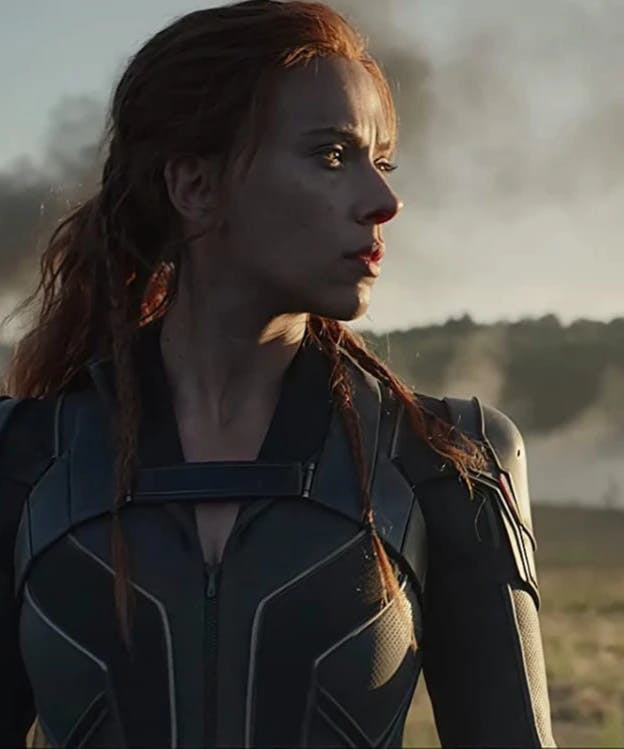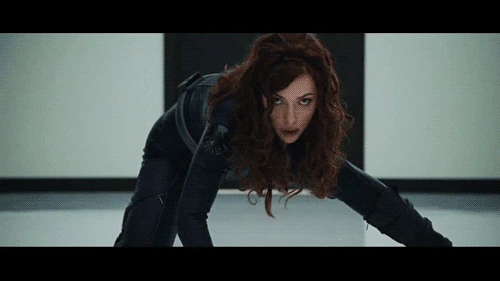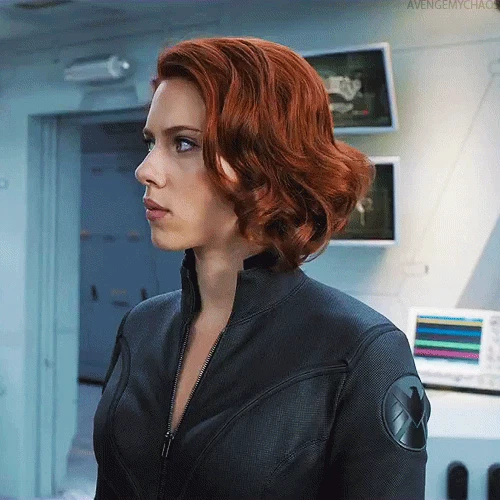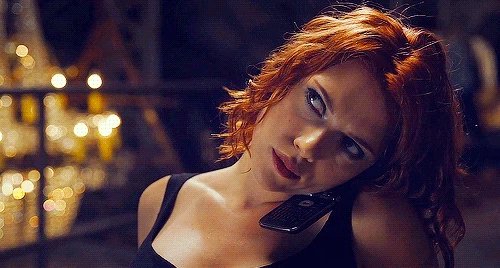Scarlett Johansson Doesn't Want Black Widow to Be "Batman In Heels"
Black Widow—the Marvel Avenger played by Scarlett Johanssen—is getting her own movie. She joins the fast-growing ranks of female superheroes (like Wonder Woman and Captain Marvel) at the helm of their own films.

It’s a trend that seems likely to continue, particularly in the age of modern feminism in which kicking a man’s butt (literally) earns you the moniker of “strong female character.” But as these movies take center stage at the box office, there are a few actors beginning to wonder what—if anything—makes a female superhero different than a male one? Scarlett Johanssen is one of them.
Refreshingly, Johanssen sees her upcoming movie as an opportunity to showcase female strength. In an interview with Entertainment Weekly, she said, “We can actually have more female superheroes who are inherently female and aren’t just Batman in heels or whatever.” In other words, perhaps a woman’s power doesn’t lie in her ability to kick gigantic men in the head. Perhaps it lies somewhere else entirely. Go figure.
We can actually have more female superheroes who are inherently female and aren’t just Batman in heels.
Johanssen is not the first actress to promote the power of femininity. Maleficent stars Angelina Jolie and Elle Fanning made similar comments last year. Jolie cautioned against female characters whose strength is “to beat the man, or she has to be like the man, or she has to somehow not need the man.” And Fanning said that a character who is “soft and feminine and wants to be a wife and have babies” can be “a beautiful, strong thing that isn't portrayed a lot on screen.”

But Black Widow, like Batman, is a superhero without powers. Her status as an Avenger rests solely on her ability to kick, flip, and punch the living daylights out of whoever crosses her path (usually giant, sometimes superpowered, men). But, unlike Batman, she doesn’t even rely on gadgets, suits, and suped-up cars to give her the edge against villains. Her physical prowess—we’re meant to believe—is enough to cut it in the superhero big leagues.
Female Superheroes Have Powers for a Reason
But superpowers are a female superhero’s necessary secret weapon. They are what allow her to be what Johanssen is getting at: inherently female but also able to hold her own in a fight against men. Wonder Woman is the perfect example. Gal Gadot’s Diana is kind, compassionate, gushes over babies, and wants to find love. But, because of her superpowers, she can physically best giant men in a way that seems believable within the world of the film.
Because of her superpowers, a female superhero can physically best giant men in a way that seems believable within the world of the film.
For Johanssen, Black Widow’s strength “really lies in her vulnerability and her acceptance of that.” This is an intriguing idea, and a step in the right direction. A woman is vulnerable—particularly in a physical fight with a man—and it often is this vulnerability that proves to be her strength. Her willingness to love, to sacrifice, to think before she acts: all these are more traditionally feminine traits and worthy of praise and notice. They just won’t get you very far when standing on the business end of a loaded gun.

Female Strength Is Different
Johanssen describes Black Widow as someone who has “emotional intelligence that has allowed her to survive without any real superpowers.” And, while Black Widow certainly does display emotional intelligence (and while this is often, as Johanssen observes, a quality that is “inherently female”), Black Widow survives on her ability to fight.
In order to have ‘inherently female’ superheroes, we need to be realistic about their limitations, as well as their strengths.
This is a problem, given that, in reality, a woman—even one as trained as Black Widow—would not be able to best juggernaut villains who sometimes have powers to boot. In order to have “inherently female” superheroes, we need to be realistic about their limitations, as well as their strengths. Or—like with Wonder Woman—give them powers to allow them to compete physically against men.

Closing Thoughts
The fact that some celebrities are starting to call foul on the current Hollywood version of “empowered” women is a good thing. A great thing really. It can allow us to hope that the trend of casting women as better than men only when they act like men might one day die away. But acknowledging that women’s strengths are different than men’s means letting go of one of Hollywood’s most dearly held falsehoods: that any woman can beat up any man. Kick that in the head, and we’ll be getting somewhere.